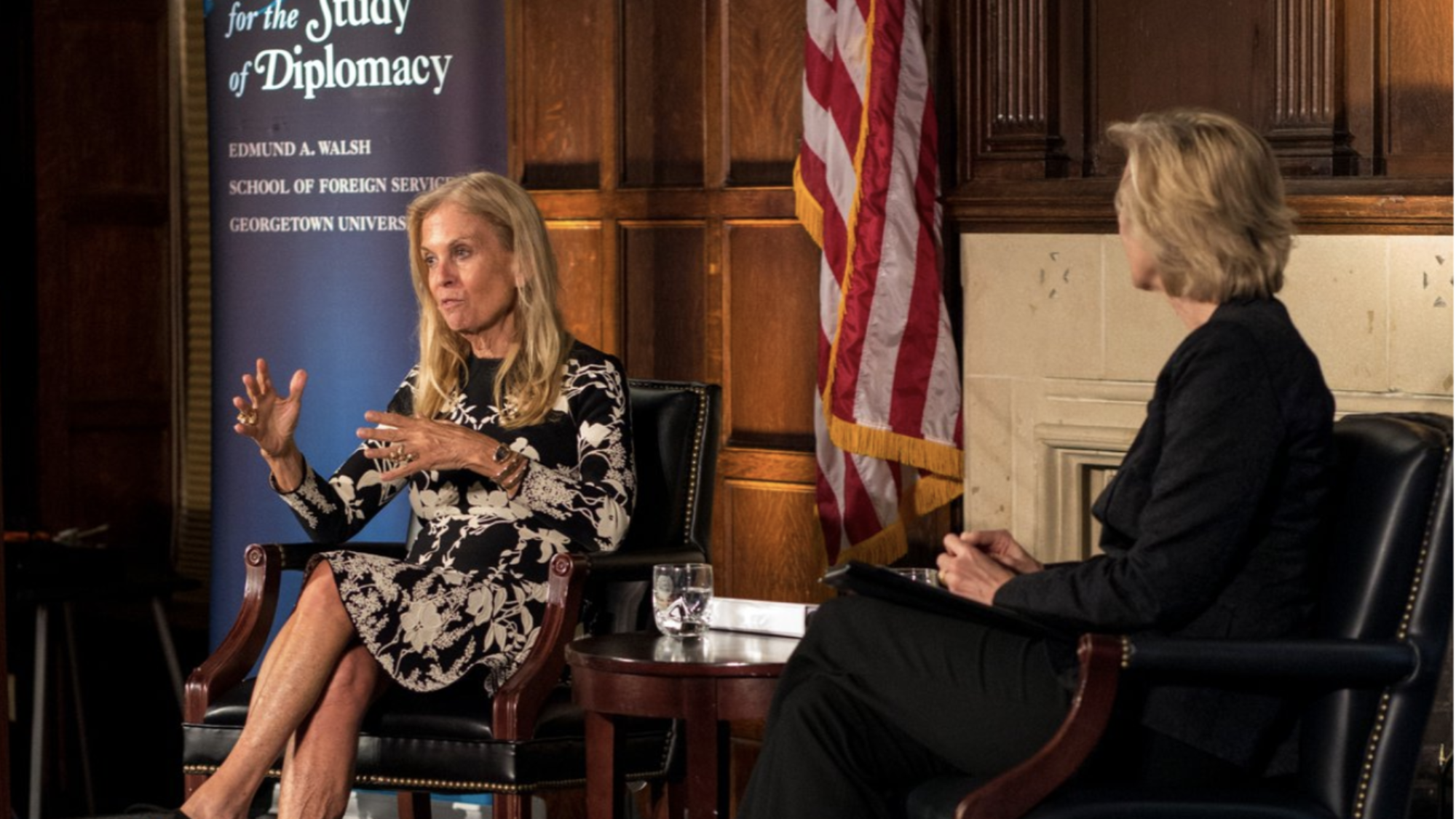GJIA: Since serving under the Obama administration, what changes have you observed and how has President Trump’s domestic focus impacted U.S. foreign policy?
JH: I was very proud to work for President Obama and Secretary Kerry. I was very proud of some of the international agreements we worked on. For me specifically, because I was in Paris, I’ll talk about climate. That was something where President Obama actually came to stay with me [at the Ambassador’s Residence] during the COP 21 meetings. Both he and Secretary Kerry realize how important this climate agreement really was to the future of the planet. I think that in terms of international agreements, both that and Iran are critical as we go forward. The Trump administration at the moment doesn’t seem willing to keep those agreements going.
How has the nature of the France’s relationship with U.S. evolved and how do you see this shift impacting the bilateral influence of these countries in the U.S. and the EU?
First of all, I think our institutions are strong and I think our institutions will continue to work together, whether that’s diplomats, sharing of intelligence, or what we are doing militarily. On other policy positions, we are probably not going to be in agreement and President Macron has made that pretty clear. [Last week] at the UN, in his speech right after President Trump’s, he disagreed with our policy on North Korea, he disagreed with our policy on Iran and he disagreed with our policy on climate. I think that is going to continue if the administration keeps going forward in terms of where they are now on those issues.
You mentioned President Macron. His relationship with President Trump is very intriguing. Could you lend some insight as to what led Trump to accept Macron’s Bastille Day invitation, and the fact that Macron extended it at all given that several world leaders were refusing to welcome Trump? What does their relationship mean on global level for the power dynamic?
What I did see with Emmanuel Macron is that he doesn’t change his positions because of Trump. Trump came but then Macron countered him once again on climate. My feeling was President Macron did not invite Trump to change his positions but more to show that he was a leader of Europe, especially as Brexit is consuming a lot of time in the U.K.
Speaking of Brexit and the populist movement, with the unpredicted landslide that Macron’s “En Marche” party had during the legislative elections, does that mean the populist wave in France and the growing power of the National Front is over or do you think they will re-emerge in the next cycle?
I think it will depend on how successful the Macron government is. If they are successful with these reforms, particularly on the economy, the Front National could be diminished, but I think we will have to wait and see. What was interesting is that Macron ran as a change candidate. He was just a change candidate for, perhaps, good policy.
What unites the U.S. and France, rather than what divides us?
Both the governments and the people still stand for the values we care about. Maybe this is under the political level at this moment but we are critical to each other, in what we are doing militarily in our fight against ISIL, on security and law enforcement. I don’t think the institutions will change even if when it comes to the politics at the top we may be a little apart at the moment.
Since several of the initiatives the U.S. and France were working on together before, like Russia, haven’t been as high of priorities for this administration, do you think those are still areas in which the two countries will continue to work together or will France have to look elsewhere for partnerships?
I’m not there anymore but I hope we would continue to work together because we really are critical allies in this fight. Having lived in France during a lot of these very dark days, the U.S. was a critical partner to France and vice-versa.
Disclaimer: This transcript has been lightly edited for clarity and length.
. . .
Jane D. Hartley is the former U.S. Ambassador to France and Monaco and a member of the Council on Foreign Relations. Prior to being appointed to the foreign service, she worked in the Carter Administration and served as the CEO of the G7 Group and the Observatory Group, two leading economic consulting firms.

